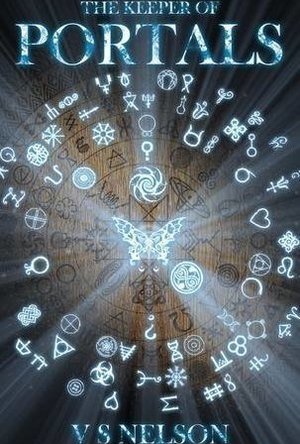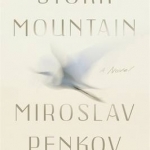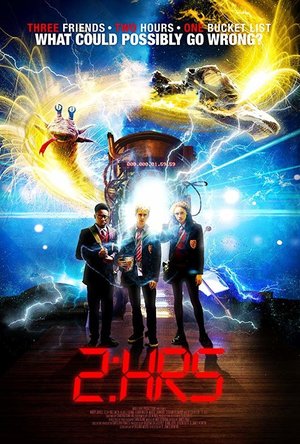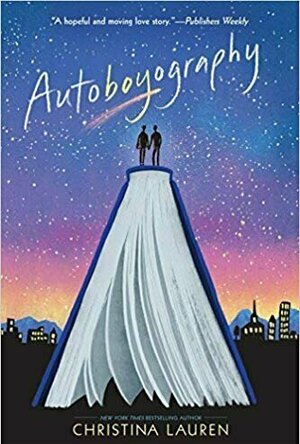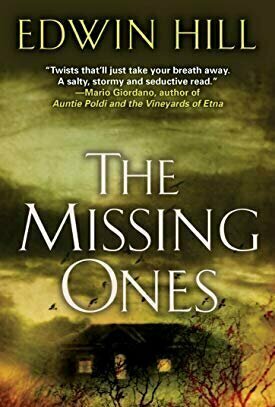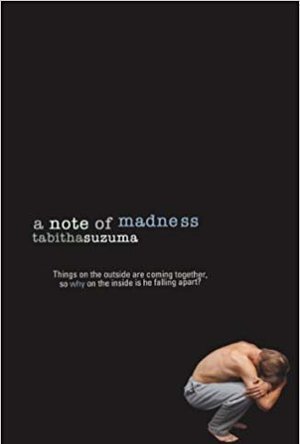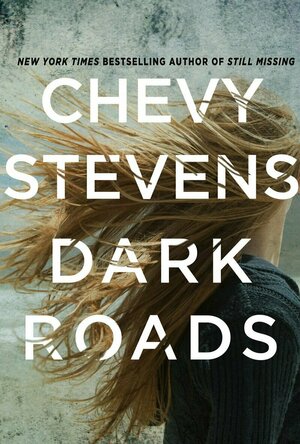Search
Hazel (1853 KP) rated The Keeper of Portals in Books
Dec 17, 2018
<i>This ARC was provided by the author in exchange for an honest review </i>
Awaiting young adult readers in early 2017 is a fantasy story unlike any other. <i>The Keeper of Portals</i> is the debut novel of V.S. Nelson, the soon-to-be-published author with an imagination worth sharing. Incorporating the familiar concept of time travel into a new way of visualizing the world results in a story that will leave minds reeling.
Nelson’s theory is that every aspect of life has a keeper, a creature in charge of making sure their assigned element functions smoothly. There are the major keepers responsible for time, causality and other things that cannot be seen, yet objects as small as buttons have their own keeper, too. Humans, of course, are unaware of these keepers, therefore fifteen-year-old Martin Lockford initially believes he is going mad when the Keeper of Portals reveals his existence in Martin’s bedroom.
Martin and his mother, with nowhere else to go, have moved into a dilapidated manor once owned by a distant relative. Whilst exploring his new room, Martin is startled by a disembodied voice claiming to be the Keeper of Portals. Having not spoken to anyone for 400 years, Portals is eager to show off his role in the flowing of the unpredictable universe. The keeper’s task is to make sure each door leads to the correct place – something that he demonstrates by sending Martin to the <i>wrong</i> places. However, there is one door in the manor that he has been unable to open.
The very next morning, Martin awakes to discover the sealed door is no longer locked and, being the curious boy that he is, goes through to explore. The mystery door does not only transport Martin to a different place, it sends him back in time to 1623. Here he meets the young Isabel, a maid, who is intrigued with the inventions of the future, especially from a personal hygiene perspective. However, she is not the only one curious about the 21st century.
The irascible master of the manor is not who he initially seems. With the desire to control everything, he places Martin and Isabel in a grave predicament, trapping them in the 17th century. At risk of creating a paradox, Martin needs to return to his own time – a difficult feat in itself – however, with the Keeper of Portals missing, the master has caused many problems that need to be solved, otherwise a whole new future will be born.
Admittedly, it takes a while for the story to warm up – the reader may be introduced to the idea of keepers fairly early on, yet the key storyline does not reveal itself until much later. After perseverance on the reader’s behalf, <i>The Keeper of Portals</i>, becomes an exciting mix of fantasy and science fiction, cleverly thought out to create an unpredictable scenario. Adventure after adventure, until bittersweet conclusion, keeps readers engaged and compelled to read on long after bedtime.
Although Martin is the protagonist of the novel, Isabel’s role is equally important. Despite women in the 1600s being deprived on the rights they have in this day and age, Isabel is an intelligent, independent girl, perfectly able to handle everything that is thrown at her. She is an inspiration to teenage girls.
Written with teenage readers in mind, <i>The Keeper of Portals</i> is suitable for fantasy-loving adults, too. With equipoise of adventure and intellectual theory, as well as a touch of romance, it is definitely a book to look out for. V.S. Nelson writes with clarity, exuding remarkable intelligence; let us hope that there will be more from where this came from.
Awaiting young adult readers in early 2017 is a fantasy story unlike any other. <i>The Keeper of Portals</i> is the debut novel of V.S. Nelson, the soon-to-be-published author with an imagination worth sharing. Incorporating the familiar concept of time travel into a new way of visualizing the world results in a story that will leave minds reeling.
Nelson’s theory is that every aspect of life has a keeper, a creature in charge of making sure their assigned element functions smoothly. There are the major keepers responsible for time, causality and other things that cannot be seen, yet objects as small as buttons have their own keeper, too. Humans, of course, are unaware of these keepers, therefore fifteen-year-old Martin Lockford initially believes he is going mad when the Keeper of Portals reveals his existence in Martin’s bedroom.
Martin and his mother, with nowhere else to go, have moved into a dilapidated manor once owned by a distant relative. Whilst exploring his new room, Martin is startled by a disembodied voice claiming to be the Keeper of Portals. Having not spoken to anyone for 400 years, Portals is eager to show off his role in the flowing of the unpredictable universe. The keeper’s task is to make sure each door leads to the correct place – something that he demonstrates by sending Martin to the <i>wrong</i> places. However, there is one door in the manor that he has been unable to open.
The very next morning, Martin awakes to discover the sealed door is no longer locked and, being the curious boy that he is, goes through to explore. The mystery door does not only transport Martin to a different place, it sends him back in time to 1623. Here he meets the young Isabel, a maid, who is intrigued with the inventions of the future, especially from a personal hygiene perspective. However, she is not the only one curious about the 21st century.
The irascible master of the manor is not who he initially seems. With the desire to control everything, he places Martin and Isabel in a grave predicament, trapping them in the 17th century. At risk of creating a paradox, Martin needs to return to his own time – a difficult feat in itself – however, with the Keeper of Portals missing, the master has caused many problems that need to be solved, otherwise a whole new future will be born.
Admittedly, it takes a while for the story to warm up – the reader may be introduced to the idea of keepers fairly early on, yet the key storyline does not reveal itself until much later. After perseverance on the reader’s behalf, <i>The Keeper of Portals</i>, becomes an exciting mix of fantasy and science fiction, cleverly thought out to create an unpredictable scenario. Adventure after adventure, until bittersweet conclusion, keeps readers engaged and compelled to read on long after bedtime.
Although Martin is the protagonist of the novel, Isabel’s role is equally important. Despite women in the 1600s being deprived on the rights they have in this day and age, Isabel is an intelligent, independent girl, perfectly able to handle everything that is thrown at her. She is an inspiration to teenage girls.
Written with teenage readers in mind, <i>The Keeper of Portals</i> is suitable for fantasy-loving adults, too. With equipoise of adventure and intellectual theory, as well as a touch of romance, it is definitely a book to look out for. V.S. Nelson writes with clarity, exuding remarkable intelligence; let us hope that there will be more from where this came from.
Hazel (1853 KP) rated Stork Mountain in Books
May 25, 2017
Captivating
I received this book for free through Goodreads First Reads.
Bulgarian-born, short storywriter Miroslav Penkov has turned to full-length novels with this captivating book, Stork Mountain. Set in the Bulgarian Strandja Mountains on the border of Turkey, he explores religion, mythology, the past and the present in a society affected by long-term political unrest.
The narrator, a young man who remains nameless throughout, relocated to the United States of America as a child after the fall of Communism. Now he returns to his home country to find his grandfather, an elderly man he lost contact with three years ago. However his real motive is purely for self gain: to sell his section of the family land in order to pay off student loans and his rising debt.
Naturally, things do not go according to plan. The protagonist finds his grandfather hiding in the village of Klisura, a place divided between the Christians and the Muslims. He also discovers that there is no longer any land for him to sell, making his journey fairly pointless. Instead of returning to the Western world, he stays in his grandfather’s house and, very slowly, begins to learn the truth about his family’s past, the man his grandfather once was, and the superstitious pagan activities still affecting some of the village’s inhabitants today.
Stork Mountain is full of the history, folklore and mythology of a little known about European country. Although ultimately a contemporary novel, there is a lot to learn about events that led up to southern Bulgaria’s current condition. As well as being informative, Penkov plays with his readers’ hearts by including a Romeo and Juliet-esque relationship between the narrator and a Muslim girl, and also reveals a similar affair between a younger Grandfather and the girl of his dreams.
Books containing politics are often reserved for those with particular interest in the topic, however Stork Mountain is suitable for a much larger audience. The inclusion of Bulgarian folklore adds a dark fairytale-like quality to the story; and the romance, something for the reader to latch onto.
On reading the blurb I jumped to the conclusion that this book would be boring. I was wrong. Whereas stories with similar themes can be hard going, Stork Mountain was fast paced and easy to read. There were a few confusions about who was talking or whether the narrative was about the past or the future, but these issues may be something that is improved upon as the author finds his groove in full-length novels.
Even if, like me, you have prejudged this book to be boring, I urge you to give it a go. You may find yourself pleasantly surprised. Miroslav Penkov definitely has a future in the world of literature.
Bulgarian-born, short storywriter Miroslav Penkov has turned to full-length novels with this captivating book, Stork Mountain. Set in the Bulgarian Strandja Mountains on the border of Turkey, he explores religion, mythology, the past and the present in a society affected by long-term political unrest.
The narrator, a young man who remains nameless throughout, relocated to the United States of America as a child after the fall of Communism. Now he returns to his home country to find his grandfather, an elderly man he lost contact with three years ago. However his real motive is purely for self gain: to sell his section of the family land in order to pay off student loans and his rising debt.
Naturally, things do not go according to plan. The protagonist finds his grandfather hiding in the village of Klisura, a place divided between the Christians and the Muslims. He also discovers that there is no longer any land for him to sell, making his journey fairly pointless. Instead of returning to the Western world, he stays in his grandfather’s house and, very slowly, begins to learn the truth about his family’s past, the man his grandfather once was, and the superstitious pagan activities still affecting some of the village’s inhabitants today.
Stork Mountain is full of the history, folklore and mythology of a little known about European country. Although ultimately a contemporary novel, there is a lot to learn about events that led up to southern Bulgaria’s current condition. As well as being informative, Penkov plays with his readers’ hearts by including a Romeo and Juliet-esque relationship between the narrator and a Muslim girl, and also reveals a similar affair between a younger Grandfather and the girl of his dreams.
Books containing politics are often reserved for those with particular interest in the topic, however Stork Mountain is suitable for a much larger audience. The inclusion of Bulgarian folklore adds a dark fairytale-like quality to the story; and the romance, something for the reader to latch onto.
On reading the blurb I jumped to the conclusion that this book would be boring. I was wrong. Whereas stories with similar themes can be hard going, Stork Mountain was fast paced and easy to read. There were a few confusions about who was talking or whether the narrative was about the past or the future, but these issues may be something that is improved upon as the author finds his groove in full-length novels.
Even if, like me, you have prejudged this book to be boring, I urge you to give it a go. You may find yourself pleasantly surprised. Miroslav Penkov definitely has a future in the world of literature.
Kristy H (1252 KP) rated The Guest Room in Books
Feb 13, 2018
Richard Chapman reluctantly agrees to host his younger brother's bachelor party--at his own home. He suspects his brother, Philip, and Philip's good friend Spencer may be hiring some "entertainment" for the party, but isn't expecting the two women and Russian bodyguards who show up for the evening. Nor is Richard expecting what follows -- an evening of drinking, partying, sex, and suddenly - murder, when the women kill their bodyguards and disappear. Suddenly, Richard finds himself trying to explain what happened to his wife, their young daughter, his employer, and the world at large. Further he finds himself haunted by memories of his interactions with one of the girls, Alexandra.
This was an interesting book with a somewhat fascinating premise. It brings up a lot of questions about morality. What role does our society play when it comes to bachelors parties -- and what is the expectation of those attending? And the spouses and fiancees on the other side? What do we tell ourselves about the origin of the "talent" that appears at such functions? Bohjalian attempts to explore these questions through Richard's story - which unfolds from Richard's perspective, that of his wife, Kristin, and one of the hired girls, Alexandra. It becomes almost a bit of a thriller - as we piece together bits before the party, the aftermath, and also learn what led up to the girls' fateful decision.
A bit of the book lags in the beginning, but it picks up quickly and becomes quite compelling. One would think Richard would be the main character, but for me, the story revolved around Alexandra. Her tale is the most thought-provoking and insightful. At points, the novel is simply heart-breaking. Richard's sections are often irritating and frustrating, as you can only have so much sympathy for the man at points. Kristin is a good go-between - the innocent bystander blindsided by what occurred in her home when she was not there.
Overall, the book weaves the story nicely around its characters. Little details give a nuanced perspective that authors less experienced than Bohjalian may lack (he's also one of the few authors that has me hitting the dictionary from time to time to look up words). There was a time when I really felt my rating for this could range from 2 - 4 stars. It received a bump for the ending, which just felt fitting, and for Alexandra, who was a lovely protagonist and written in such a quiet way that doesn't come along very often. In the end, this felt more than a "life in suburbia gone terribly wrong" story - it was cold and heartless, yet heart-breaking and compassionate. A worthwhile read, for sure.
(Note: I received an ARC from Netgalley in return for an unbiased review.)
This was an interesting book with a somewhat fascinating premise. It brings up a lot of questions about morality. What role does our society play when it comes to bachelors parties -- and what is the expectation of those attending? And the spouses and fiancees on the other side? What do we tell ourselves about the origin of the "talent" that appears at such functions? Bohjalian attempts to explore these questions through Richard's story - which unfolds from Richard's perspective, that of his wife, Kristin, and one of the hired girls, Alexandra. It becomes almost a bit of a thriller - as we piece together bits before the party, the aftermath, and also learn what led up to the girls' fateful decision.
A bit of the book lags in the beginning, but it picks up quickly and becomes quite compelling. One would think Richard would be the main character, but for me, the story revolved around Alexandra. Her tale is the most thought-provoking and insightful. At points, the novel is simply heart-breaking. Richard's sections are often irritating and frustrating, as you can only have so much sympathy for the man at points. Kristin is a good go-between - the innocent bystander blindsided by what occurred in her home when she was not there.
Overall, the book weaves the story nicely around its characters. Little details give a nuanced perspective that authors less experienced than Bohjalian may lack (he's also one of the few authors that has me hitting the dictionary from time to time to look up words). There was a time when I really felt my rating for this could range from 2 - 4 stars. It received a bump for the ending, which just felt fitting, and for Alexandra, who was a lovely protagonist and written in such a quiet way that doesn't come along very often. In the end, this felt more than a "life in suburbia gone terribly wrong" story - it was cold and heartless, yet heart-breaking and compassionate. A worthwhile read, for sure.
(Note: I received an ARC from Netgalley in return for an unbiased review.)
Lucy Buglass (45 KP) rated 2:HRS (2018) in Movies
Jun 20, 2019
The concept of knowing when you’re going to die is a fascinating one, and sparks many philosophical debates. Would you like to know so you can do everything you’ve wanted, or would you rather live in blissful ignorance and take life as it comes? Unfortunately for our protagonist, Tim, he doesn’t really get the opportunity to debate this after encountering a machine that correctly predicts the lifespan of every living thing. The title 2:HRS relates to the time predicted by the machine, which encourages Tim to use his time left wisely.
Whilst it’s a harrowing revelation, the events that follow are predominantly slapstick and family-friendly, with the occasional heartwarming moment thrown in. Tim isn’t alone on his quest to check off his bucket list, being accompanied by two of his school friends who he convinced to ditch a school trip with him. This decision is how they stumbled across the machine in the first palace, so the trio certainly got more than they bargained for that day. Like any adventure, an antagonist is close behind, and in this case its the machine’s inventor who wants to see the prediction come true no matter what.
Despite being an intriguing concept for all ages, 2:HRS falls flat in a lot of places. The script is more cringe-worthy than funny, and whilst I appreciate the target audience is younger than me, I still believe it would’ve benefited from better screenwriting. That being said, the actors worked well with what they were given and gave great performances throughout. I probably laughed about three times throughout the film, so at least I can give them that. The young actors were especially good, and I’m looking forward to seeing their future work as I know they could go far.
Another thing that bothered me was the ending. It ended so abruptly and nothing was really tied up, which was a huge disappointment for me. I didn’t like their decision to leave it so open-ended as it didn’t make sense nor make an impact. It was probably designed to coax one last laugh from audiences, but didn’t work for me sadly. 2:HRS does have some redeeming scenes that I enjoyed a lot, including a moment near the end of the film with Tim and his sister. If the rest of the film had been of that quality, I would have rated it higher.
Overall, 2:HRS feels like an average, forgettable film but an entertaining watch when you’re relaxing on the sofa looking for something light-hearted to stick on. It’s worth a watch, but it’s not a film I’ll be rewatching any time soon.
https://lucygoestohollywood.com/2018/07/30/the-clock-is-ticking-my-thoughts-on-2hrs/
Whilst it’s a harrowing revelation, the events that follow are predominantly slapstick and family-friendly, with the occasional heartwarming moment thrown in. Tim isn’t alone on his quest to check off his bucket list, being accompanied by two of his school friends who he convinced to ditch a school trip with him. This decision is how they stumbled across the machine in the first palace, so the trio certainly got more than they bargained for that day. Like any adventure, an antagonist is close behind, and in this case its the machine’s inventor who wants to see the prediction come true no matter what.
Despite being an intriguing concept for all ages, 2:HRS falls flat in a lot of places. The script is more cringe-worthy than funny, and whilst I appreciate the target audience is younger than me, I still believe it would’ve benefited from better screenwriting. That being said, the actors worked well with what they were given and gave great performances throughout. I probably laughed about three times throughout the film, so at least I can give them that. The young actors were especially good, and I’m looking forward to seeing their future work as I know they could go far.
Another thing that bothered me was the ending. It ended so abruptly and nothing was really tied up, which was a huge disappointment for me. I didn’t like their decision to leave it so open-ended as it didn’t make sense nor make an impact. It was probably designed to coax one last laugh from audiences, but didn’t work for me sadly. 2:HRS does have some redeeming scenes that I enjoyed a lot, including a moment near the end of the film with Tim and his sister. If the rest of the film had been of that quality, I would have rated it higher.
Overall, 2:HRS feels like an average, forgettable film but an entertaining watch when you’re relaxing on the sofa looking for something light-hearted to stick on. It’s worth a watch, but it’s not a film I’ll be rewatching any time soon.
https://lucygoestohollywood.com/2018/07/30/the-clock-is-ticking-my-thoughts-on-2hrs/
Kristy H (1252 KP) rated Autoboyography in Books
Mar 19, 2020
When Tanner's family relocates from progressive California to Provo, UT, the bisexual teenager is basically forced back in the closet. While his parents are actually incredibly supportive of his sexuality, their own past experiences lead them to want to keep their son safe and guarded in the largely conservative Mormon community. Now a senior in high school, Tanner is ready to graduate and leave Provo behind. But when his best friend Autumn convinces him to join the Seminar--a rather famous Provo high school class where students write a novel in four months--everything changes. There Tanner meets the Seminar's most well-known graduate, Sebastian Brother, a Mormon who sold his book rights last year. Tanner immediately falls for Sebastian, and he starts chronicling it all: in his own book.
I have a lot of complicated feelings about this book. It's wonderful to see a bisexual protagonist in YA literature, even if Tanner's bisexuality doesn't seem fully explored (and he's not always believed). This is very emotional book, and it certainly wrenched at my heartstrings. From the beginning, it seems pretty clear that there isn't going to be an easy outcome. Sebastian and Tanner are going to fall for each other. The Mormon community doesn't support their brethren being gay. Sebastian can either have Tanner or his family, right?
I also wasn't sure why Tanner's family was so against him a) coming out in Provo or b) falling for a Mormon. We learn that his family has a lot of baggage that causes this, but it was a little strange. The book's exploration of the religious aspect of Mormonism was very interesting and eye-opening, though, as a result, I wasn't sure how realistic the ending was. Still, I found the two boys' exploration and relationship to be heartbreaking and riveting.
There is a lot going on in the book--so many deep emotions, along with coverage of religion and sexuality. I found myself very protective of Tanner and trying to understand his parents, at times, even if they were supportive overall. I even felt that way about Sebastian, even though I couldn't imagine, truly, how he must be feeling, trying to reconcile his own emotions about Tanner against his religious upbringing.
In the end, I liked this one a lot even if I found some areas problematic (Tanner's parents; an incident with Tanner and Autumn; the ending wrapping up a little neatly). It was a very insightful look at religion and sexuality for these two young men and really got me thinking about a lot. Through all the angst, there was a lot of depth and feeling. 4 stars.
I have a lot of complicated feelings about this book. It's wonderful to see a bisexual protagonist in YA literature, even if Tanner's bisexuality doesn't seem fully explored (and he's not always believed). This is very emotional book, and it certainly wrenched at my heartstrings. From the beginning, it seems pretty clear that there isn't going to be an easy outcome. Sebastian and Tanner are going to fall for each other. The Mormon community doesn't support their brethren being gay. Sebastian can either have Tanner or his family, right?
I also wasn't sure why Tanner's family was so against him a) coming out in Provo or b) falling for a Mormon. We learn that his family has a lot of baggage that causes this, but it was a little strange. The book's exploration of the religious aspect of Mormonism was very interesting and eye-opening, though, as a result, I wasn't sure how realistic the ending was. Still, I found the two boys' exploration and relationship to be heartbreaking and riveting.
There is a lot going on in the book--so many deep emotions, along with coverage of religion and sexuality. I found myself very protective of Tanner and trying to understand his parents, at times, even if they were supportive overall. I even felt that way about Sebastian, even though I couldn't imagine, truly, how he must be feeling, trying to reconcile his own emotions about Tanner against his religious upbringing.
In the end, I liked this one a lot even if I found some areas problematic (Tanner's parents; an incident with Tanner and Autumn; the ending wrapping up a little neatly). It was a very insightful look at religion and sexuality for these two young men and really got me thinking about a lot. Through all the angst, there was a lot of depth and feeling. 4 stars.
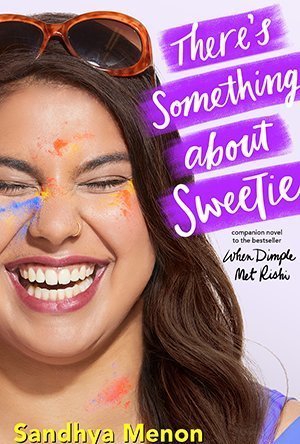
There's Something About Sweetie
Book
The irresistible companion novel to the New York Times bestseller When Dimple Met Rishi, which...
Haley Mathiot (9 KP) rated Hourglass (Hourglass, #1) in Books
Apr 27, 2018
Let me just say right now that I'm glad I didn't judge this book by its cover, because I never would have requested it. The cover doesn't particularly appeal to me; for that matter, the title didn't make me curious either. Even after I read the back cover I wasn't convinced. I like to be intrigued and the cover/summary fooled me. But I saw a good review for it somewhere, so I snatched it up. I'm very happy I did.
Time travel has been done poorly so many times, but Hourglass was fantastic. It was original and creative, and it met every requirement for a perfect book: it had tension, awesome characters, a well thought out and multi-layered plot, and good writing.
There was tension in every sentence of ever paragraph of every chapter. It was nearly impossible to put down. I completely lost track of time while I read it. (haha, lost track of…get it?…. it's a time travel book…never mind.) I was forced to put it down to do things like work and chores and food, but except for things like that, it kept me reading, and there were no empty scenes.
The characters were amazing. Can I just say that I want to marry Michael right now? omigoodness. He's going on my list. Any author who can write a character like that is going on my favorites list right now. Emerson is strong-willed, kick-ass, and has to remind herself that she's short because her personality is the opposite. She was the perfect heroine because she was real and fragile and head over heels in love with someone she wasn't supposed to love. Michael was the brave proud chivalrous attractive protagonist who has a major hero complex, and of course is trying not to be in love with Em (and failing miserably). Both of them together had humorous conversations and explosive chemistry. (like, things short circuit when they touch, and light bulbs break when they kiss.)
The plot kept me guessing all the way to the end, and the last quarter of the book threw so many twists and turns at me that I found myself thinking, "Ok wait, what? are you serious?" But it wasn't overdone, there was no overkill, and it worked perfectly in the end. (I'll keep it spoiler free, but I'll just say don't worry, it does work out. Don't get mad and throw the book against the wall like I did.)
And of course, the writing. I find that many young adult novels have mediocre writing. McEntire is a good writer in the sense that she can keep the tension real and controlling, she has good descriptions and great pacing, and there are no dead words.
Hourglass was fast-paced, exciting, unique, and completely enthralling. I anxiously await more from McEntire hope for more of Michael and Emerson's story in the future.
Content/recommendation: some mild language, no sex. Ages 16+
Time travel has been done poorly so many times, but Hourglass was fantastic. It was original and creative, and it met every requirement for a perfect book: it had tension, awesome characters, a well thought out and multi-layered plot, and good writing.
There was tension in every sentence of ever paragraph of every chapter. It was nearly impossible to put down. I completely lost track of time while I read it. (haha, lost track of…get it?…. it's a time travel book…never mind.) I was forced to put it down to do things like work and chores and food, but except for things like that, it kept me reading, and there were no empty scenes.
The characters were amazing. Can I just say that I want to marry Michael right now? omigoodness. He's going on my list. Any author who can write a character like that is going on my favorites list right now. Emerson is strong-willed, kick-ass, and has to remind herself that she's short because her personality is the opposite. She was the perfect heroine because she was real and fragile and head over heels in love with someone she wasn't supposed to love. Michael was the brave proud chivalrous attractive protagonist who has a major hero complex, and of course is trying not to be in love with Em (and failing miserably). Both of them together had humorous conversations and explosive chemistry. (like, things short circuit when they touch, and light bulbs break when they kiss.)
The plot kept me guessing all the way to the end, and the last quarter of the book threw so many twists and turns at me that I found myself thinking, "Ok wait, what? are you serious?" But it wasn't overdone, there was no overkill, and it worked perfectly in the end. (I'll keep it spoiler free, but I'll just say don't worry, it does work out. Don't get mad and throw the book against the wall like I did.)
And of course, the writing. I find that many young adult novels have mediocre writing. McEntire is a good writer in the sense that she can keep the tension real and controlling, she has good descriptions and great pacing, and there are no dead words.
Hourglass was fast-paced, exciting, unique, and completely enthralling. I anxiously await more from McEntire hope for more of Michael and Emerson's story in the future.
Content/recommendation: some mild language, no sex. Ages 16+
Kristy H (1252 KP) rated The Missing Ones in Books
Mar 19, 2020
Research librarian Hester Thursby returns in THE MISSING ONES, but she's not the same. Shaken by the traumatic series of events that occurred in book one, Hester is anxious and guilty. This affects her parenting of four-year-old, Kate, the daughter of her partner Morgan's sister, Daphne. (Follow that?) Daphne has now been gone for over a year, and Hester and Morgan are still caring for Kate. Meanwhile, on Finisterre Island in Maine, Rory, a local cop, is watching the ferry come in yet again. He's ignoring the whispers and suspicion of others on the island, who believe he is responsible for taking Oliver, a four-year-old who disappeared over the summer--and whom Rory found, safe and sound. Now another child is missing. Soon Hester gets a text--asking her to come to the island. In short order, she'll find a body there, and connect it to the missing children. But Finisterre Island is a small place, and not one to give up its secrets easily.
Reading this novel has definitely secured Edwin Hill and the Hester Thursby series as a go-to author/series combo for me. This was an excellent and compelling read. Hester is a wonderful, complex protagonist, and I hated to see her so fragile and struggling. I love Hill's stable of regular characters--Hester, Morgan, Kate, and their dog, Waffles. Plus, several folks from the last book pop up again, which was fun. Always hovering in the background is the missing Daphne, and Hester's complicated feelings: Daphne is her best friend; Morgan's sister; and Kate's mother. Of course she wants her back in their lives, but by now, she fiercely loves Kate and feels like her mother. It adds a deeper layer to the books and an aspect that I really enjoy. And Kate, while "just" four, is a total trip. I love that kid.
The mystery presented here is wonderfully plotted and complex. Introducing Finisterre Island gives us a whole host of new characters: Rory; Annie, Faith, and young Ethan, who are all squatting in a broken down Victorian on the Island; Lydia, Oliver's mother, who runs the local inn and bakery and her husband Trey, a state cop; and others. With a small island comes intense and tangled relationships, and Hill presents and handles them all deftly. The story kept me guessing and intrigued--fascinated both by the murder and mysteries, as well as Hester's own personal issues. Seeing a vulnerable side to her was difficult due to my adoration for her character, but it was so well-done. And, of course, she's still able to solve crimes, because she's amazing.
Overall, this was an excellent read. I love Hester--and her little created family. Hill is an amazing writer and does a great job at creating a suspenseful world that easily sucks you in. 4.5 stars.
Reading this novel has definitely secured Edwin Hill and the Hester Thursby series as a go-to author/series combo for me. This was an excellent and compelling read. Hester is a wonderful, complex protagonist, and I hated to see her so fragile and struggling. I love Hill's stable of regular characters--Hester, Morgan, Kate, and their dog, Waffles. Plus, several folks from the last book pop up again, which was fun. Always hovering in the background is the missing Daphne, and Hester's complicated feelings: Daphne is her best friend; Morgan's sister; and Kate's mother. Of course she wants her back in their lives, but by now, she fiercely loves Kate and feels like her mother. It adds a deeper layer to the books and an aspect that I really enjoy. And Kate, while "just" four, is a total trip. I love that kid.
The mystery presented here is wonderfully plotted and complex. Introducing Finisterre Island gives us a whole host of new characters: Rory; Annie, Faith, and young Ethan, who are all squatting in a broken down Victorian on the Island; Lydia, Oliver's mother, who runs the local inn and bakery and her husband Trey, a state cop; and others. With a small island comes intense and tangled relationships, and Hill presents and handles them all deftly. The story kept me guessing and intrigued--fascinated both by the murder and mysteries, as well as Hester's own personal issues. Seeing a vulnerable side to her was difficult due to my adoration for her character, but it was so well-done. And, of course, she's still able to solve crimes, because she's amazing.
Overall, this was an excellent read. I love Hester--and her little created family. Hill is an amazing writer and does a great job at creating a suspenseful world that easily sucks you in. 4.5 stars.
Eleanor Luhar (47 KP) rated A Note of Madness (Flynn Laukonen, #1) in Books
Jun 24, 2019
Tabitha Suzuma is quickly becoming one of my favourite authors.
I didn't realise this was the first of two books, but it reads fine as a standalone novel anyway. I hadn't intended to read on, but I just love Suzuma's writing too much. I've reserved the next novel at the library.
I found this quite similar to Hurt in a couple of ways; firstly, the protagonist is a young male who is experiencing something very unpleasant but important to talk about. Instead of rape, as in Hurt, this time the topic is mental health. Flynn's got the whole world at his feet, but suddenly he's up all night composing or drowning himself in alcohol and aspirin. Everything feels wrong and he doesn't know why. His flatmate, Harry, calls Flynn's brother in to help. He's a doctor and soon realises Flynn needs proper help. After one incorrect diagnosis and several relapses, Flynn finally feels the world go back to normal.
Although the ending is typically "hopeful" (which you can only expect, really - it's not gonna be very helpful for kids to read stories where you never recover from your mental illness) it still manages to be realistic rather than overly positive and optimistic. For example, Flynn is offered a couple of amazing experiences in this book, the first of which he is determined to take. But he doesn't, because his health declines so much. I can tell you how horrible it is when you have your heart set on something but your mental health holds you back... Sometimes you just can't do it. Flynn's health gets so bad that his brother takes him away on the eve of his big concert (he's a music uni student).
There's also a romance line through this, which I gather will be furthered in the next book. Flynn doesn't pay much attention to it - doesn't even notice it - due to his condition, until it's too late and he's messed it up. Jennah is an old crush of his, recently parted from her boyfriend for a mysterious "other guy". Flynn just doesn't put 2 and 2 together, though, and assumes she could never love him because he's so hopeless and talentless and depressed. Things really get bad when they argue about it during one of Flynn's relapses, and she goes missing for the night. I must admit that I immediately feared the worst after what happened in Hurt, but it was eventually resolved. I am very interested in reading how Flynn's mental illness impacts his relationship in the future.
This is a great topic to address, especially in males. The episodes may be a little exaggerated but then I suppose that is how some people experience it. It's different for everyone. I really appreciate the age chosen, too, because people often forget that mental illnesses don't only develop when you're twelve or thirteen. 5 stars; a fantastic book and a fantastic author.
I didn't realise this was the first of two books, but it reads fine as a standalone novel anyway. I hadn't intended to read on, but I just love Suzuma's writing too much. I've reserved the next novel at the library.
I found this quite similar to Hurt in a couple of ways; firstly, the protagonist is a young male who is experiencing something very unpleasant but important to talk about. Instead of rape, as in Hurt, this time the topic is mental health. Flynn's got the whole world at his feet, but suddenly he's up all night composing or drowning himself in alcohol and aspirin. Everything feels wrong and he doesn't know why. His flatmate, Harry, calls Flynn's brother in to help. He's a doctor and soon realises Flynn needs proper help. After one incorrect diagnosis and several relapses, Flynn finally feels the world go back to normal.
Although the ending is typically "hopeful" (which you can only expect, really - it's not gonna be very helpful for kids to read stories where you never recover from your mental illness) it still manages to be realistic rather than overly positive and optimistic. For example, Flynn is offered a couple of amazing experiences in this book, the first of which he is determined to take. But he doesn't, because his health declines so much. I can tell you how horrible it is when you have your heart set on something but your mental health holds you back... Sometimes you just can't do it. Flynn's health gets so bad that his brother takes him away on the eve of his big concert (he's a music uni student).
There's also a romance line through this, which I gather will be furthered in the next book. Flynn doesn't pay much attention to it - doesn't even notice it - due to his condition, until it's too late and he's messed it up. Jennah is an old crush of his, recently parted from her boyfriend for a mysterious "other guy". Flynn just doesn't put 2 and 2 together, though, and assumes she could never love him because he's so hopeless and talentless and depressed. Things really get bad when they argue about it during one of Flynn's relapses, and she goes missing for the night. I must admit that I immediately feared the worst after what happened in Hurt, but it was eventually resolved. I am very interested in reading how Flynn's mental illness impacts his relationship in the future.
This is a great topic to address, especially in males. The episodes may be a little exaggerated but then I suppose that is how some people experience it. It's different for everyone. I really appreciate the age chosen, too, because people often forget that mental illnesses don't only develop when you're twelve or thirteen. 5 stars; a fantastic book and a fantastic author.
Kristy H (1252 KP) rated Dark Roads in Books
Aug 12, 2021
A dark and unsettling mystery
For years, the nearly five hundred mile stretch of Cold Creek Highway has been infamous as a place where young women go missing. Drivers, hitch hikers, and more. But their abductor has never been found. Hailey McBride lives in Cold Creek. Her father recently died in a car accident, leaving her to live with her aunt and her controlling police officer husband, Vaughn. Vaughn watches Hailey's every move, bullying and terrorizing her, keeping her from seeing her best friend, Jonny and her new love interest, Amber. Using what her dad taught her about the local land, Hailey plans her escape to the mountains. With Jonny's help, the idea is that everyone will think she was another victim of the highway killer. A year after Hailey disappears, Beth Chevalier arrives in town, desperate for closure after her sister Amber's murder. Beth's life is in shambles after Amber's death, and she starts to look into what happened. But Beth's search puts her in danger--and starts to reveal the truth about what happened to Hailey.
"I had to get out of this house, and this town."
This is a dark and often stressful book. It's told from two perspectives, Hailey and Beth. I was quite attached to Hailey, who is suffering at the hands of Vaughn, the stereotypical power-hungry small-town cop. He embodies the part of the sinister bad guy. Because he seems to control the entire town (no one will even give Hailey a job, since Vaughn doesn't want her to have one), her only choice is to go live in a shack in the mountains and basically let everyone think she's dead. The book shifts from menacing to survival-in-the-woods story and then we flip to Beth's perspective, where she's a struggling wannabe law student who arrives in Cold Creek to figure out who killed her sister (who was Hailey's love interest).
If it seems like a lot and a bit confusing, it is. I liked this book, but it did seem like it had multiple personalities. I found it tense at times (add to the fact that Hailey had a dog in the wilderness--I cannot handle books where something might happen to an animal) and other times a bit slow. Vaughn is our clear bad guy--Hailey even discovers some of his many terrible traits and crimes. But if that's true, then why are we reading? Just to catch him? At times, the book catches us off kilter, guessing and wondering. At other times, it falls a bit flat when the whole premise doesn't really seem to work. Who is our protagonist and what is the end goal?
Overall, this is an often dark and quite atmospheric book. It's creepy and twisty and sometimes heartbreaking. Is it worth reading? Yes. But I'm not sure if it ever lives up to its true potential.
I received a copy of this book from St. Martin's Press and Netgalley in return for an unbiased review.
"I had to get out of this house, and this town."
This is a dark and often stressful book. It's told from two perspectives, Hailey and Beth. I was quite attached to Hailey, who is suffering at the hands of Vaughn, the stereotypical power-hungry small-town cop. He embodies the part of the sinister bad guy. Because he seems to control the entire town (no one will even give Hailey a job, since Vaughn doesn't want her to have one), her only choice is to go live in a shack in the mountains and basically let everyone think she's dead. The book shifts from menacing to survival-in-the-woods story and then we flip to Beth's perspective, where she's a struggling wannabe law student who arrives in Cold Creek to figure out who killed her sister (who was Hailey's love interest).
If it seems like a lot and a bit confusing, it is. I liked this book, but it did seem like it had multiple personalities. I found it tense at times (add to the fact that Hailey had a dog in the wilderness--I cannot handle books where something might happen to an animal) and other times a bit slow. Vaughn is our clear bad guy--Hailey even discovers some of his many terrible traits and crimes. But if that's true, then why are we reading? Just to catch him? At times, the book catches us off kilter, guessing and wondering. At other times, it falls a bit flat when the whole premise doesn't really seem to work. Who is our protagonist and what is the end goal?
Overall, this is an often dark and quite atmospheric book. It's creepy and twisty and sometimes heartbreaking. Is it worth reading? Yes. But I'm not sure if it ever lives up to its true potential.
I received a copy of this book from St. Martin's Press and Netgalley in return for an unbiased review.
